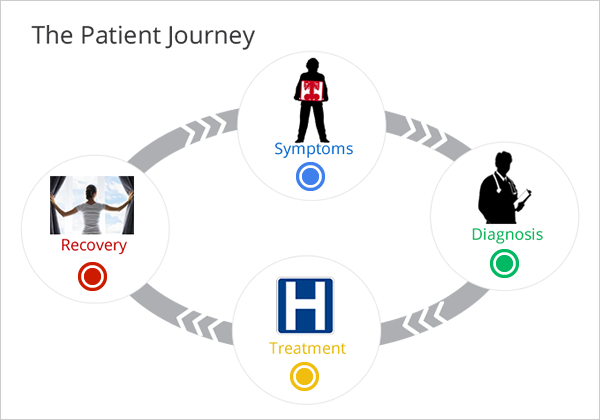Your Google Analytics
Partner in Asia Pacific
We are in the business of enabling actionable online
insights throughout this region

We know that people use the internet to research all kinds of products and services. In this study, we found that searching for hospitals is no exception. Of those who research online, three times more end up on hospital sites as a result of search. But they're not just visiting sites. They're also planning visits. Of patients who found hospitals on their mobile devices, 44% scheduled an appointment.
 |
Patients are looking for HospitalsIn today’s digital world, prospective patients are now active partners in their medical journeys. They actively participate in identifying symptoms, sharing their diagnosis, evaluating treatments available whilst comparing notes whilst monitoring progress throughout their road to recovery. |
 |
Search is keySearch is indispensable throughout the patient’s journey. Brands that want to be associated with a treatment will need to take this into account. Close to half of all patients surveyed typically spent more than 2 weeks to research before booking treatment from a hospital. Their search paths typically involved websites from the hospital itself, their health insurance, health information sites & portals with consumer generated reviews. |
 |
Mobile Devices are importantTheir mobile devices are a constant companion. Close to a third of all patients surveyed revealed that they used a tablet or a mobile device daily for research and to book appointments. Mobile device usage tended to center around locating a facility for treatment, comparing offerings between facilities, and reading reviews about the experience of other patients treated in those facilities. |
Online Videos are more ConvincingOnline Videos are a pivotal component of hospital research. This is because it informs and connects, because sight, sound and motion tell stories & fuel conversations. Patients often use video reviews and testimonials to learn about hospitals and treatment options. Typically after watching the online videos, these patients share the video if they liked it. Then they talk to their friends, family or colleagues about the hospital. If they are convinced, they then contact the hospital and schedule for an appointment. |
Subscribe to our mailing list for the latest updates and quarterly insights from our research team.
Subscribe Now